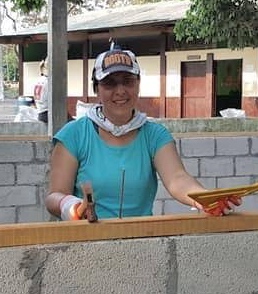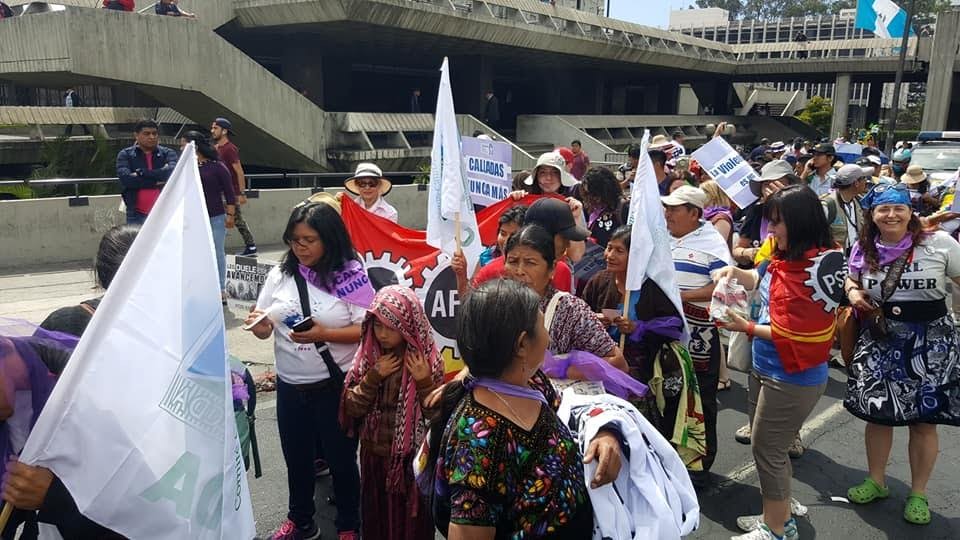 What leadership roles do you hold at PSAC?
What leadership roles do you hold at PSAC?
I volunteer with my Local 70705 by preparing our weekly newsletter for members and I am one of the Local's VPs.
Where do you work?
I work at IRCC.
What was your most recent work as a union activist with PSAC?
I volunteered with the PSAC Social Justice Fund Education in Action (EIA) from March 1-15, 2019. Since 2017, EIA has partnered with a coffee-growing co-op in Guatemala where PSAC members volunteer and learn about their projects first hand. I travelled with twelve other PSAC members to live and work with the co-op members. Part of the trip included: touring their various projects, meeting with co-op activists and other local leaders working for justice in Guatemala.
We travelled to the Xinka community, an indigenous community actively fighting against a Canada silver mine. Community members told us about the negative effects of the silver mine on their community and how they are resisting. We visited Antonio Camey, a community leader, near Santa Rosa, who is part of the mining resistance. We learned his family received death threats and intimidation from the mine owners. He told us he could no longer work in the community because of the mine’s intimidation tactics. The water in the area is contaminated from the mine, so no one in the city will buy his crops. Because he is prevented from working, he doesn’t have money to seek medical attention for his wife, who sells ice cream to provide some support the family. The blue ice cream maker on his porch is how he’s surviving as he could no longer sell his produce or work in his fields for fear of being killed.
We also visited Cuilapa, the Xinka Parliament, where we spoke with Emy Gomez and Luis Fernando Garcia who are fighting to protect indigenous Xinka communities from the destructive interests of Canadian mining. Luis’ family, in particular, has been deeply affected, and during a peaceful protest at the mine’s entrance Luis was shot in the face under orders by the Pan American Silver’s security manager, Alberto Rotondo in 2013.
In a makeshift encampment, local community members keep a 24-hour watch on all incoming and outgoing transportation in and out of the mine since June 2017. They want to stop operations of the mines that have devastated their communities by contaminating the water supply, depleting 26 wells worth of water reserves, crop loss, health problems, community divisions, the social effects of losing livelihoods, income loss, increased crime, violence, prostitution, and other continuing problems.
This is why PSAC’s EIA is supporting grassroots organizations to improve livelihoods of Mayan campesinos (farmers) in Guatemala through initiatives based on social justice and fair trade.
EIA is also using education as a bridge to social change. The vision is to work in solidarity with coffee producers through targeted field projects and sale of fair trade organic coffee in Canada. Education in Action is committed to learning through cultural immersion and community outreach in the spirit of partnership and respect for indigenous peoples.
 What did you accomplish?
What did you accomplish?
We built a local school for an indigenous community.
What would you say to other members who are interested in getting involved?
Going as a PSAC member to volunteer and learn from co-op members in Guatemala was a beautiful experience. I saw that, despite great odds they face, they are building a community that can be sustainable, protect the environment and fight for justice at the same time. I encourage members to volunteer on the next trip.
Members can also support the co-op by purchasing fair trade coffee which is available at PSAC headquarters.
